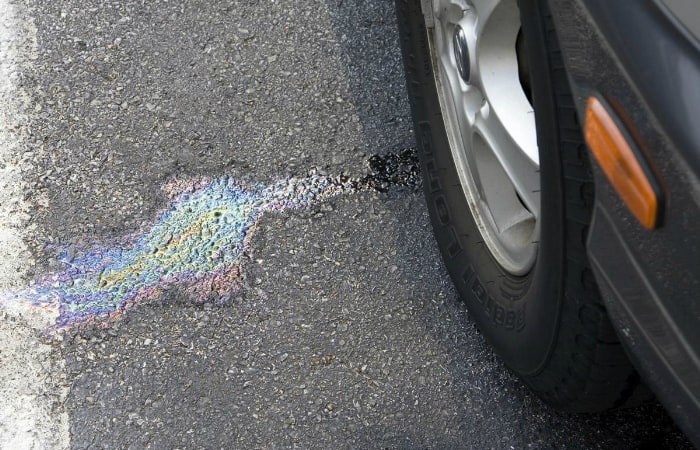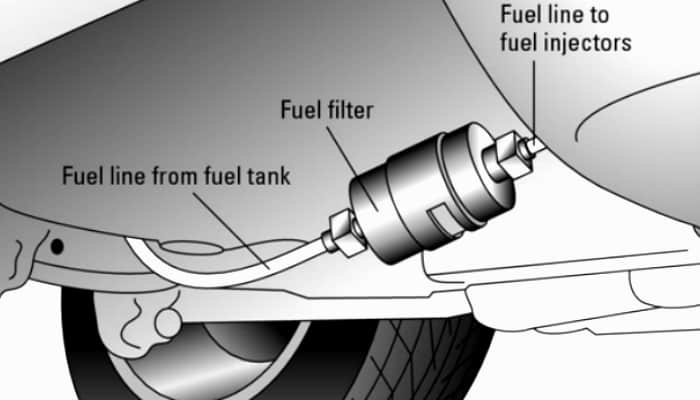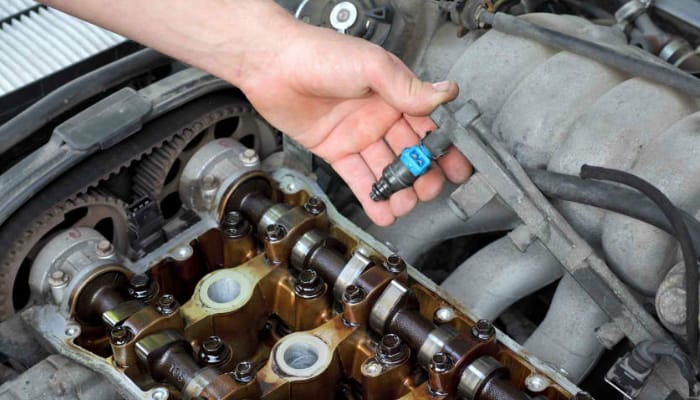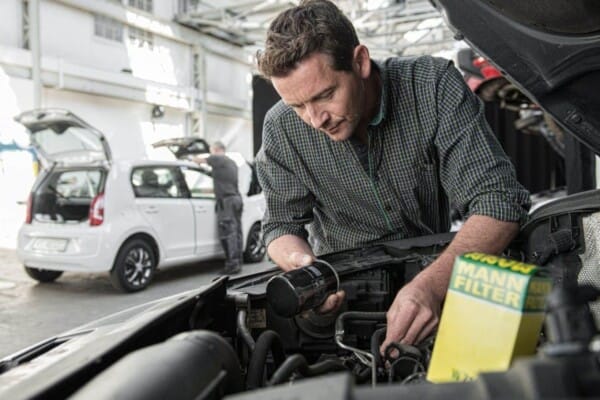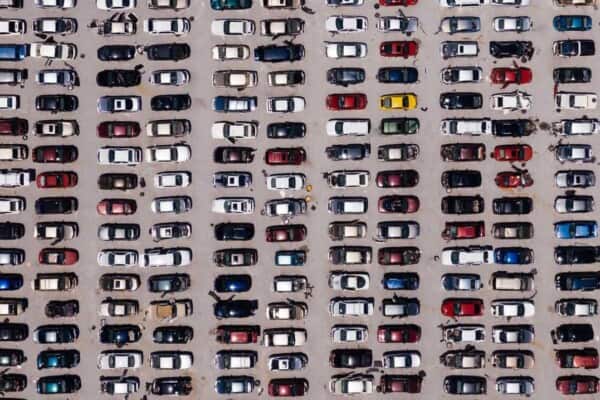Normally, cars do not smell like gas. If there is a strong gas odor from your car while parking, your vehicle probably has an internal problem. This must be solved immediately. However, you should know first the possible reasons why a car smells like gas when parked. Some reasons actually do not need fixing.
Bad Fuel Pressure
A fuel pressure regulator with irregularities can make your vehicle burn fuel until the mixture gets too thin or too rich. Burning extra gas may increase fumes inside your exhaust. If a leak makes the exhaust penetrate the ventilation system, gas fumes can also enter inside the car. Smell is not the only sign of fuel pressure regulator fail. Another sign is weaker fuel efficiency and power.
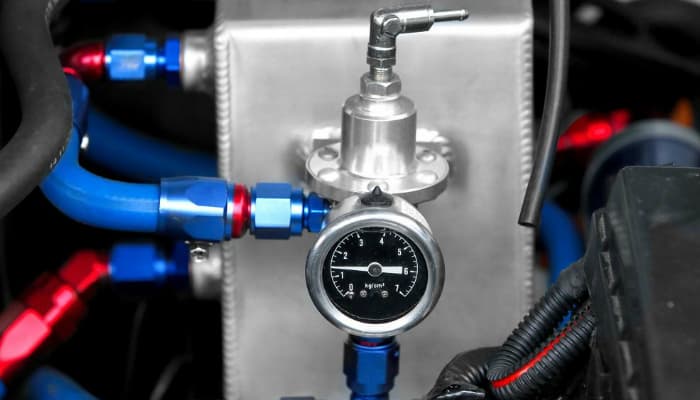
Gas Leaks
One way to prove that your car smells like gas because of leaks is by searching for black puddles under the vehicle. If this is the case, the specific reason is more likely due to fuel line leak. Going further, there are in fact several reasons for gas leaks.
Fuel Line
Fuel lines are found underneath cars. They connect the engine and the fuel tank. It is kind of normal to encounter damaged fuel lines because of their unfortunate location. Fuel lines can be crushed easily due to different elements and debris along the road. Ones that are made of rubber are susceptible to leaks when they already operated for several years or are damaged by clumsy mechanics.

Fuel-Injection Line
Strong gas fume smell once you park your vehicle can be caused by a leak in the fuel injection line. Fuel injection promotes higher pressure along the fuel lines. The pressure in today’s cars can go from 60 to 125 psi. Weak fitting makes the fuel come out from different sections of the line. This results to vapor or mist which contributes to the gas smell. This is actually really dangerous if the leak is near the engine or exhaust. Another hazardous thing about gas mist is its health effects. Breathing in gas fumes can cause headaches and dizziness, ultimately leading to brain damage in the long run if this car problem is not solved immediately.
Injector
The main cause behind injector leaks is their rubber or o-ring seal. All injectors have an o-ring placed at the top while their rubber seal is found at the bottom. These components eventually crack caused by intense dryness. Fortunately, you just have to replace the faulty seal or o-ring. You do not have to change the whole injector.

You can check the injector’s quality by opening your car’s hood and inspecting the injector in the fuel rail. Run the engine. If you smell and see fuel accumulating around the injector, then you are looking at the reason why your car smells like gas.
Fuel Tank
The most common leak is from old or punctured fuel tanks. The best way to counter this problem is by totally removing the tank. With that move, the mechanic can inspect it thoroughly for repair or replacement.
In addition, a leaking fuel-tank vent hose results to unburned gas going out of the fuel system and turning into vapor. Anyway, no matter what the specific cause is, you must let the pros repair the leaks immediately since gas puddles and fumes can incite fire.
Old Design
Cars that are manufactured in the first part of the 1980s, especially years before that, usually release a gas odor when parked. The cause is found inside the carburetor float bowl. Fuel after boil results to a stronger smell of gas. Thankfully, most new cars do not have this issue because of their modern evaporative-emissions systems.
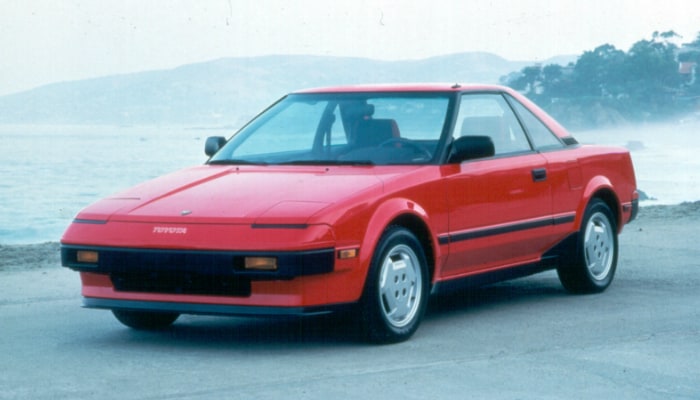
Gas Exposure
We told you earlier – not all reasons need to be fixed. Sometimes, fumes from gas stations’ pumps can definitely enter your vehicle with open windows or doors. Spilled gas that has nothing to do with your car’s internal system can also be the reason if it is found near your vehicle. It can also be found inside the car, especially if you store a bottle of gas in case of emergencies. However, if the smell stays for several days, then it turns into a serious matter.
Gas Cap
Another crucial thing to check when you smell gas after you parked your car is the vehicle’s gas cap. Never lose the cap or let it loose after opening the tank. Not only that, you should also make sure that the cap still has a good quality. A damaged gas cap can release fumes and light up the check engine indicator for new cars. The technology behind the check engine light is amazing. It lets the car make a self-test to identify leaks within.
Damaged Canister
The canister is a container made of plastic to catch charcoal. It also stores excess vapor coming from the fuel tank to lessen emissions exiting the system. When the canister cracks or leaks through its damaged seal or vent, the car lets out a strong smell of gas. That can also trigger the check engine light.
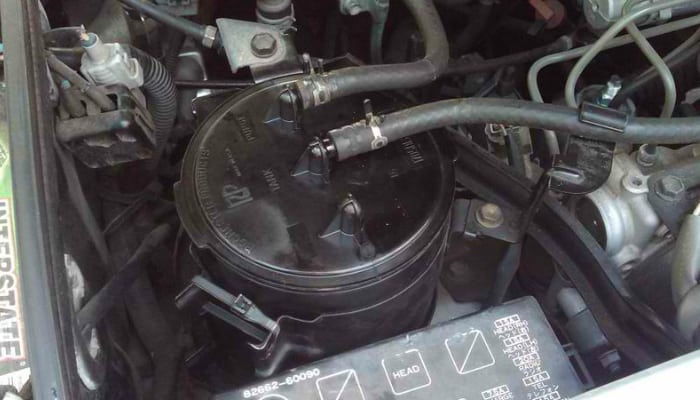
A charcoal canister is usually found in the engine compartment for old cars. For vehicles manufactured in the mid-2000s, it is now located near the fuel tank with other devices designed for emission control.
Summary
The gas smell is purely dangerous. It can affect your health and contribute to more serious accidents such as fire. That’s why always inspect your parked car before leaving it. Check for gas smell and leaks. Never take gas puddles for granted. You can harm not just yourself but other people as well. Always remember possible reasons why a car smells like gas when parked. Once you spot irregularities that come with the gas smell, let the experts check your car.
On the other hand, for the winter season, you may also check out our article about the freezing temperature of gasoline.
Maintenance is a priority for car owners. Some tools are so important to have right inside your car or garage to avoid permanent damage caused by undetected issues. Because we care for your vehicle, take a look at our list of the best car battery testers, car floor jacks and car oil filters for your reference.

